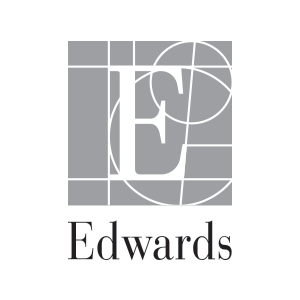
FIVE-YEAR DATA SHOW EXCELLENT OUTCOMES FOR FEMALE AND SMALL ANNULUS PATIENTS WITH EDWARDS TAVR
June 6, 2024
NEW YORK–(BUSINESS WIRE)– Edwards Lifesciences (NYSE: EW) today announced the results from an analysis of data from the PARTNER Trials examining outcomes of transcatheter aortic valve replacement (TAVR) patients with a small annulus. Through five-year follow up of more than 1,300 low and intermediate risk SAPIEN 3 valve patients there were excellent clinical outcomes and valve durability irrespective of the patient’s annulus size or sex. These data were presented during the late-breaking clinical sessions at New York Valves 2024: The Structural Heart Summit.
As part of this analysis, contemporary patient data with long-term follow up from the PARTNER 3 randomized controlled trial and PARTNER 2 S3i Trial were examined to determine if higher 30-day mean gradients and rates of prothesis-patient mismatch (PPM) translated to poorer long-term outcomes of death, disabling stroke or heart failure related hospitalization. The analysis revealed no association between clinical outcomes or valve durability and severe PPM or higher mean gradients (i.e., >20 mmHg.) Overall, this cohort of patients had extremely low rates of reintervention and high survival out to five years. As previously presented, the PARTNER 3 Trial demonstrated the highest reported survival rate in low-risk patients seen in any pivotal trial.
“This important dataset highlights the risk of relying on a singular hemodynamic parameter such as mean gradient as a surrogate for valve dysfunction,” said Rebecca Hahn, MD, Professor of Medicine at Columbia University Irving Medical Center, Chief Scientific Officer of the Echo Core Lab at the Cardiovascular Research Foundation and Director of Interventional Echocardiography at the Columbia Structural Heart & Valve Center, speaking for the PARTNER Trial investigators. “When selecting the best treatment option, we must evaluate measures that matter to patients such as death, disabling stroke, quality of life and reintervention. This five-year follow up of low and intermediate risk patients demonstrated no association of a mean gradient greater than 20 mmHg or prosthesis-patient mismatch with these key outcomes for the Edwards SAPIEN 3 platform. These are important findings for clinicians in determining the best treatment for patients.”
“The PARTNER series of robust pivotal trials, all of which included FDA oversight, rigorously followed more than 12,000 patients treated with Edwards SAPIEN valves rendering them excellent data from which to examine the totality of factors that contribute to valve durability and performance,” said Larry Wood, Edwards’ corporate vice president and group president, transcatheter aortic valve replacement and surgical structural heart. “These data are reassuring for patients and clinicians – particularly women who are more likely to receive a smaller valve – that the SAPIEN platform offers excellent survival and very low reintervention rates at five years.”
About Edwards Lifesciences
Edwards Lifesciences is the global leader of patient-focused innovations for structural heart disease and critical care monitoring. We are driven by a passion for patients, dedicated to improving and enhancing lives through partnerships with clinicians and stakeholders across the global healthcare landscape. For more information, visit Edwards.com and follow us on Facebook, Instagram, LinkedIn, Twitter and YouTube.
This news release includes forward-looking statements within the meaning of Section 27A of the Securities Act of 1933, as amended, and Section 21E of the Securities Exchange Act of 1934, as amended. We intend the forward-looking statements contained in this Proxy Statement to be covered by the safe harbor provisions of such Acts. These forward-looking statements can sometimes be identified by the use of forward-looking words, such as “may,” “might,” “believe,” “will,” “expect,” “project,” “estimate,” “should,” “anticipate,” “plan,” “goal,” “continue,” “seek,” “intend,” “optimistic,” “aspire,” “confident” and other forms of these words and include, but are not limited to, statements made by Mr. Wood and statements regarding expected product benefits, patient outcomes, post-treatment reduction of invasive procedures, objectives and expectations and other statements that are not historical facts. Forward-looking statements are based on estimates and assumptions made by management of the company and are believed to be reasonable, though they are inherently uncertain and difficult to predict. Our forward-looking statements speak only as of the date on which they are made, and we do not undertake any obligation to update any forward-looking statement to reflect events or circumstances after the date of the statement. Investors are cautioned not to unduly rely on such forward-looking statements.
Forward-looking statements involve risks and uncertainties that could cause results to differ materially from those expressed or implied by the forward-looking statements based on a number of factors as detailed in the company’s filings with the Securities and Exchange Commission. These filings, along with important safety information about our products, may be found at Edwards.com.
Edwards, Edwards Lifesciences, the stylized E logo, Edwards SAPIEN, Edwards SAPIEN 3, PARTNER, PARTNER II, PARTNER 3, SAPIEN, and SAPIEN 3 are trademarks of Edwards Lifesciences Corporation. All other trademarks are the property of their respective owners.

Source: Edwards Lifesciences Corporation